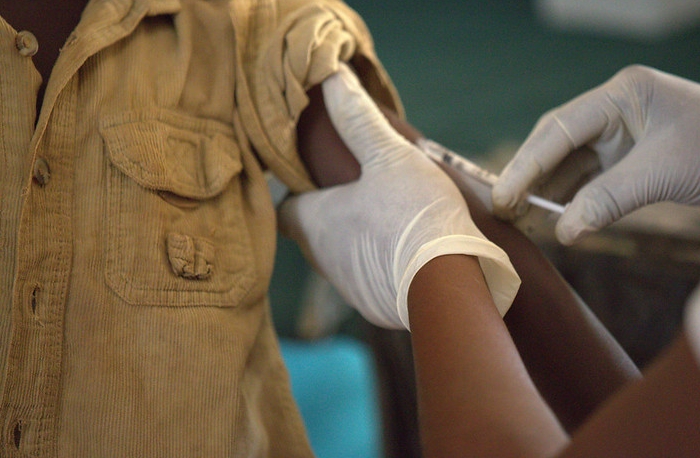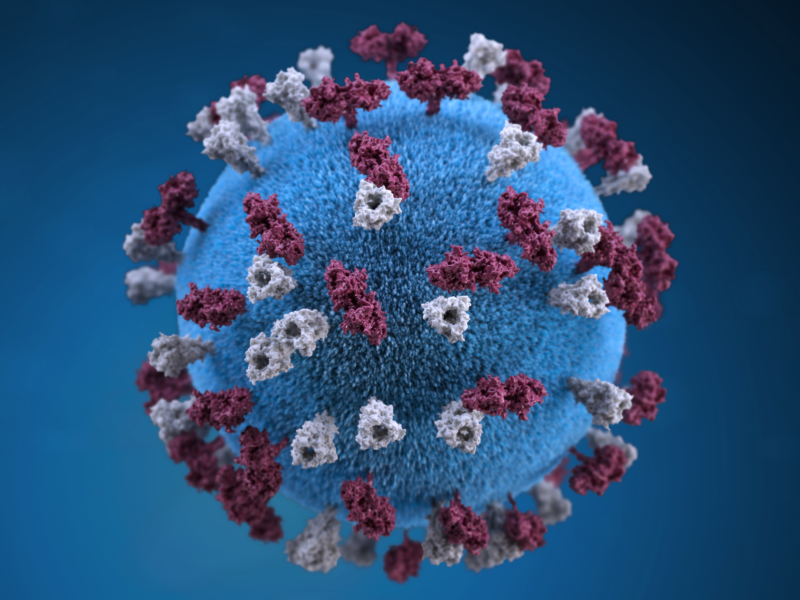Image courtesy of Flickr Creative Commons
Several months before the COVID-19 (Coronavirus Disease) pandemic began, schools across the Pacific Islands had closed and large social gatherings had been banned in an effort to control a measles outbreak [1]. American Samoa, Fiji, Samoa, and Tonga declared a measles outbreak, with the earliest case cluster occurring in Samoa on October 16, 2019 [2]. As of mid-January 2020, the World Health Organization (WHO) and United Nations Children’s Fund (UNICEF) reported a total of 6,390 cases of measles and 83 deaths due to measles in the Pacific Islands [2]. A large majority of those cases and all 83 deaths occurred in Samoa [2]. While there are fewer cases on the islands neighboring Samoa, banning large gatherings and limiting travel was enacted in late 2019 to restrict transmission within and between the islands [1].
Measles is a virus that infects the mucus in the nose and throat [3]. Its symptoms include a fever, runny nose, cough, and rash, however the potential severe complications such as pneumonia and encephalitis are what make it so dangerous [3]. While measles is highly contagious and often has the greatest impact in children, the vaccine has been shown to be safe and effective [4]. A single dose of the Measles, Mumps, and Rubella Virus Vaccine, Live (MMR) is 93% effective; and when combined with a booster shot it is 97% effective [4]. In Samoa, where the outbreak is taking the greatest toll on the population, vaccination rates have been particularly low this past year, at about 31% [5]. There is a large anti-vaccination movement in the Samoan population and a distrust of the country’s health system, which was fueled by an incidence in 2018 where two children died after a vaccine was improperly prepared with muscle relaxant, leading parents to believe that their children were safer without the vaccine [5-6]. The government has tried to reassure the population that vaccines are safe, but have been met with much resistance [5]. The Samoan government even arrested anti-vaccination activist Edwin Tamasese for “incitement against a government order” [5]. Tamasese, like many other anti-vaccination leaders, have used Facebook and other social media platforms to disseminate false information about vaccinations in an effort to prevent participation in recent vaccination efforts [5].
Mass vaccination campaigns were implemented at the start of the outbreak across the Pacific Islands with aid and support from the WHO and UNICEF [2]. Over 1.27 million vaccines have been administered among Pacific Island countries, with additional vaccines scheduled for delivery [2]. The Pacific Island governments aim to get over 90% vaccination participation to provide herd immunity for those who are unable to be vaccinated [6]. Throughout the mass vaccination efforts, houses in Samoa with unvaccinated children hung red flags indicating the need for vaccination services [6]. This created a streamline method for healthcare workers and volunteers to go to each house to provide vaccinations and boosters [6]. The Samoan prime minister, Tuilaepa Sailele Malielegaoi, showed additional support for the campaigns by posting images of himself getting vaccinated on social media [6]. The Samoan government has also taken the initiative to make immunization records digitized, to allow for better record keeping [2]. As the need for a mass vaccination campaign declines, healthcare facilities will still offer vaccines and booster doses to maintain effective immunization [2].
Mass vaccination campaigns have now been shifted to focus on other Pacific Island countries that are at high risk of an outbreak [2]. Kiribati is considered high risk because of a current increase in acute diarrhea and vomiting (ADV)/rotavirus (RDT), and the Republic of the Marshall Islands is dealing with both influenza A and dengue outbreaks [2]. The Pacific Island governments have made an effort to develop emergency preparedness plans for measles with the help and consultation of the WHO [2]. Fortunately, the number of new (confirmed) cases has been decreasing in the Pacific Islands, with no new cases in American Samoa since the start of February 2020 [7]. However, as a precaution measure, mass-gatherings and travel restrictions remain in place due to the ongoing COVID-19 pandemic outbreak [2,7].
References:
[1] https://apnews.com/5b1a0d99558431d85e5023a5afce59c9
[3] https://www.cdc.gov/measles/index.html
[4] https://www.fda.gov/consumers/consumer-updates/vaccination-best-protection-against-measles
[5] https://www.bbc.com/news/world-asia-50625680
[7] https://reliefweb.int/report/american-samoa/no-new-confirmed-cases-measles-american-samoa


